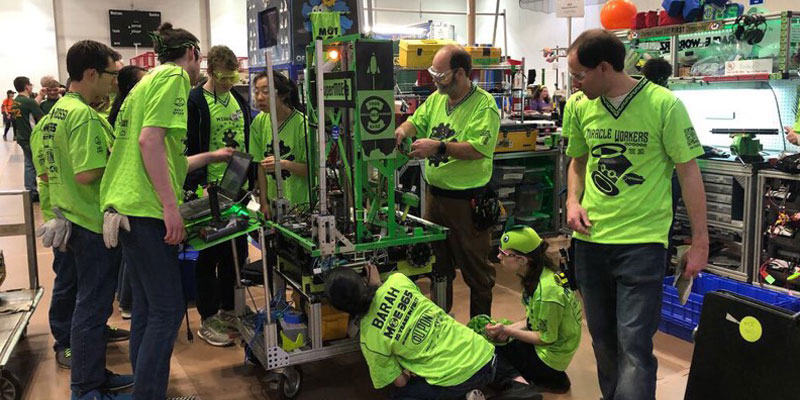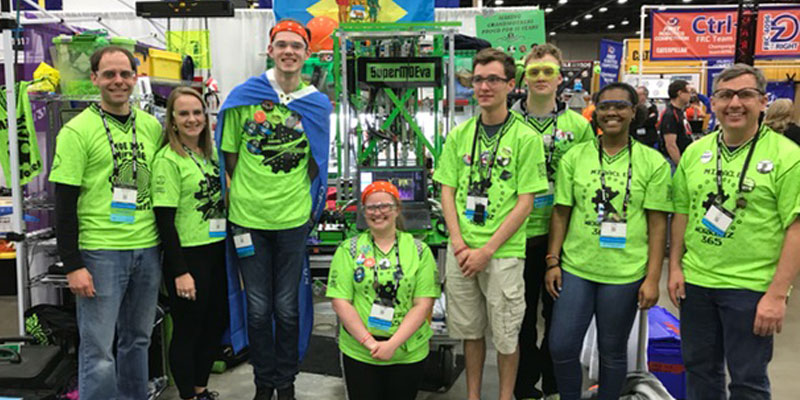Graduate students, professors coach high school robotics team in Wilmington
Two alumni and two faculty members from the University of Delaware mentored a robotics team based in Wilmington, Delaware that made it all the way to a national competition.
For Inspiration & Recognition of Science & Technology (FIRST), an organization that encourages students K-12 to explore and pursue STEM fields, holds the FIRST Robotics Competition (FRC) each year, asking high school students to design, build, power and program robots to compete in a game that is released each January.
The Miracle Workerz are an FRC team based in Wilmington that commonly goes by MOE – short for Miracles of Engineering and a tribute to their founding sponsor, DuPont. The team includes about 40 local high school students, and mentors include Christy Bugher, who received a bachelor’s in civil engineering from UD in 2016 and is now working on her master’s degree; Brigid Deely, who received a bachelor’s in civil engineering from UD in 2016 and works for Pennoni Associates Inc.; Suzanne Burcat, an adjunct instructor of mathematics at UD; and Lou Rossi, professor and chair of the Department of Mathematical Sciences at UD.
The Miracle Workerz team was founded in 1999 and has had some great successes—including winning the Championship Chairman’s Award in 2007—but 2019 started out rocky. In their first district competition, held March 8 – 10, the team lost in the quarterfinals and ranked 14th out of 32 teams. However, in the second district competition, held March 22 – 24, the team turned things around and brought up their ranking to No. 1 out of 35 teams.
In the Mid-Atlantic District Championship, held April 4 – 6, 2019, the team finished ninth out of sixty—a performance that qualified them for the worldwide FIRST Championship, which was held in Detroit, Michigan from April 24 – 27.
Robotics programs help kids learn engineering and computer programming, gain confidence in their problem-solving skills, and gain interest in engineering careers, research suggests.
For this competition, students are learning mechanics, programming, construction, how to use engineering software such as SolidWorks, and more.

Students are also learning how to quickly adapt and learn new skills—something their mentors do by example. Bugher’s studies don’t typically include robotics, but that doesn’t stop her, because the fundamental engineering process is similar throughout the disciplines – design it, build it, test it, improve it, she says. Mentoring this robotics team helps her apply some of what she knows and teaches her things she doesn’t. “I’m getting just as much out of this as the students are,” she said. “I grow as I teach them.”
Bugher didn’t have a lot of exposure to engineering—and the opportunities it provides—when she was in high school. She wants to inspire young students, especially young women, who are underrepresented in engineering, to pursue the field.
“I think it’s beneficial for students to see that, as a young engineer, I show up each day willing to work and willing to learn,” said Bugher. “In addition, as a female in an industry historically dominated by men, it’s important for all students to see women working and pursuing advanced degrees in engineering and STEM.”

